[physics and Chemistry in Coffee brewing] the best baristas must be high achiever of science!
Professional coffee knowledge exchange more coffee bean information please follow the coffee workshop (Wechat official account cafe_style)
If you like to drink coffee, how do you define a good cup of coffee? You want to go to some coffee shop? Would you like to drink some brand of coffee beans? Or is there some kind of coffee beans that tastes good? So how to make a good cup of coffee, what brewing conditions and variables do we need to know? This article introduces us to the physical and chemical factors in the process of coffee brewing from a physical and chemical point of view.
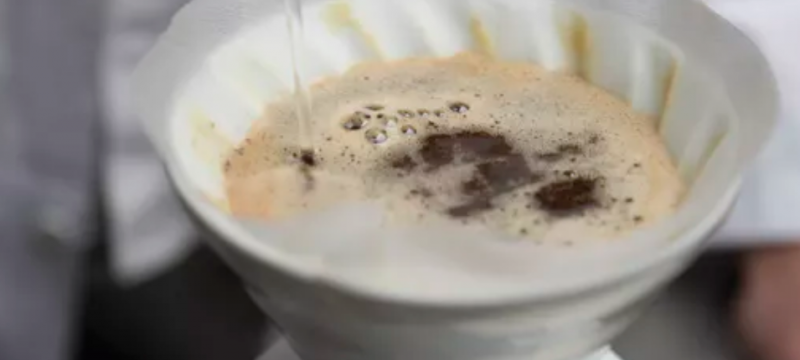
First of all, we divide the coffee brewing method into:
(1) fully immerse: immersion extraction; the most common is the French filter kettle
(2) pour-over (and other flow-through): filter extraction, such as various hand flushing methods.
From a physical point of view, the main difference is that if brewed in the way of fully immerse, the temperature of coffee particles is higher, and the slowest part of coffee extraction is not the rate of dissolution on the surface of coffee particles, but the speed at which coffee flavor moves from inside to outside when water passes through coffee particles, and this speed increases with the water temperature.
The increase in water temperature also leads to an increase in the temperature of coffee particles, which means that more delicious compounds absorbed in coffee particles will be extracted. But higher temperatures also cause more unwanted compounds to be dissolved into the water.
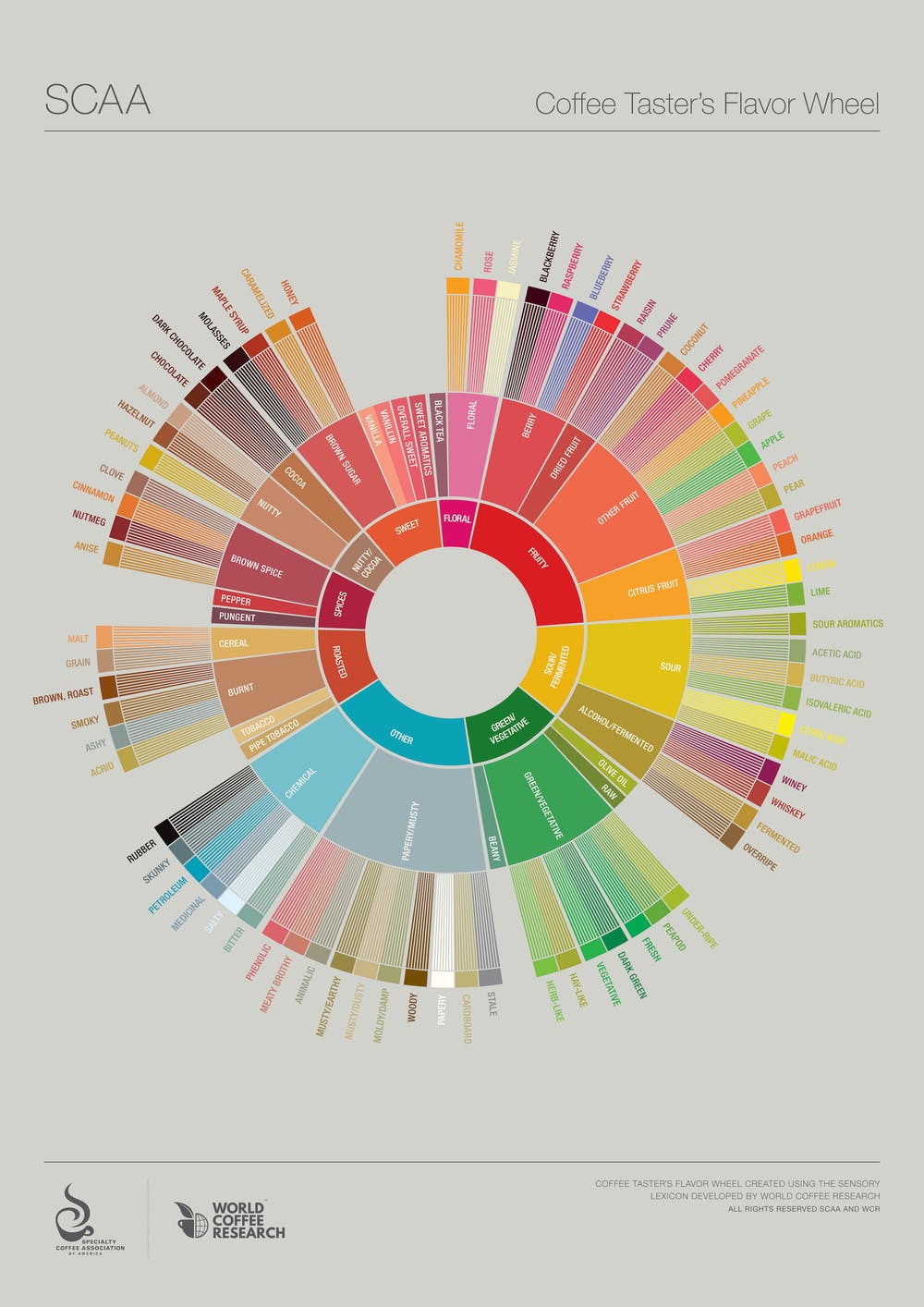
For the discussion of flavor, please refer to the flavor wheel provided by SCA to help us understand the flavor of coffee.
Hand brewing or other similar ways of making coffee are more complicated. Because unlike the fully immerse method, time is controlled. The brewing time of filter extraction depends on the grinding size of coffee, and the flow rate is controlled by the thickness of coffee powder.

In addition, there is another very important factor-the ratio of water to coffee.
When brewing coffee with the same amount of coffee beans and water, if the coffee powder is ground finer, the extraction time will be increased, because the density of the coffee powder becomes higher and the water flows more slowly. If we increase the ratio of "water to coffee" by reducing the amount of coffee without changing the amount of water, then the brewing time will be shortened. It can also be seen that the hand-brewing method is actually more complex than the fully immerse method, because the amount of water used, the degree of grinding and the brewing time of coffee all affect each other.

Then again, even if we use the same tools and brewing methods at home as in cafes, there are other reasons that affect the quality of the coffee we brew-the quality of the coffee (the chemical composition of the water), the degree of grinding, the freshness of the coffee.
(1) Water quality: because coffee is an acidic beverage, the acidity of water quality can have a great impact. Brewing coffee with low calcium ions and bicarbonate (HCO3-) (that is, soft water) will lead to coffee with high acidity. If it contains a high content of HCO3 is hard water, brewing coffee with hard water, it is easy to produce chalkiness (Note: some side effects can be seen on the description of chalkiness, it is like a light bitter taste, not sweet, not salty, light with a little bitterness), the bicarbonate in hard water has neutralized most of the essence and acid in the coffee, making the coffee insipid.
At present, most cafes use filtered water to make coffee. At home, we can also use simple water quality measuring instruments to test the water we use, and choose water purification equipment and soft water equipment through the quality of tap water. (on the effect of water quality on the flavor of brewed coffee:)
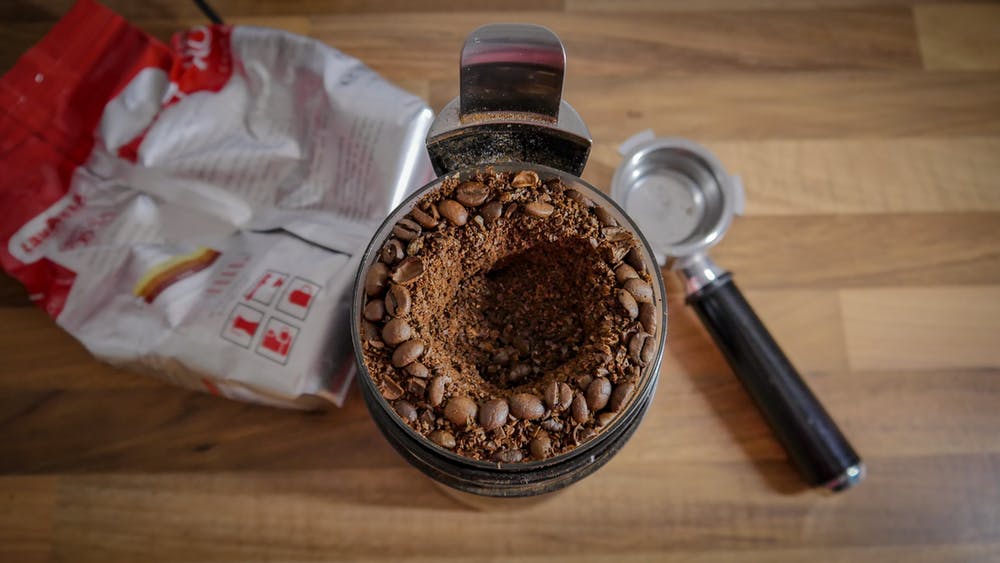
(2) Grinding degree: the thickness distribution produced by the grinder also affects the quality of coffee, whether the thickness is uniform, and whether the grinding thickness is suitable for your chosen brewing method?
(3) freshness: last but not least, the freshness of the coffee itself. When roasting coffee contains a large amount of carbon dioxide and other volatile substances are trapped in the solid coffee matrix, with the passage of time, these gaseous organic molecules will be lost from the coffee beans. Less volatile means less delicious coffee. Freshly roasted coffee beans are filled with a variety of aroma substances ~ so it's important to use freshly roasted coffee beans!
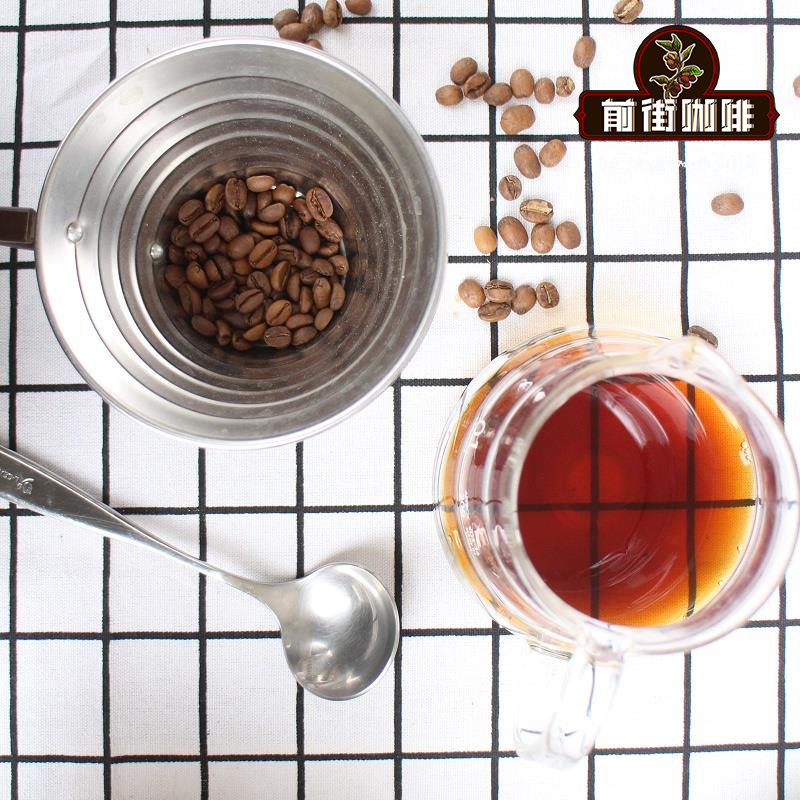
After reading the articles shared by many masters, they will finally tell you to enjoy the process. Yes, there is no right or wrong coffee, you think it tastes good, that is a good cup of coffee. The coffee trend is changing all the time, the most important thing is to have fun in it! Skills and knowledge help us to better grasp the characteristics of coffee and find ways to deal with problems. Don't be too obsessed with skills, but learn to experience cooking yourself. Share it.
Important Notice :
前街咖啡 FrontStreet Coffee has moved to new addredd:
FrontStreet Coffee Address: 315,Donghua East Road,GuangZhou
Tel:020 38364473
- Prev
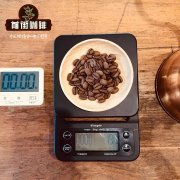
Why do you have to order coffee when you go to a coffee shop? Can coffee be refreshing?
Professional coffee knowledge exchange More coffee bean information Please pay attention to coffee workshop (Weixin Official Accounts cafe_style) Recently, Lions visited FB and saw coffee shops responding to customers 'low consumption of a cup of coffee beverage. I often heard customers think that the rules of low consumption coffee beverage are unreasonable. Many people will think that since they have all gone to the store to consume, why not only order coffee beverage, must order coffee beverage
- Next
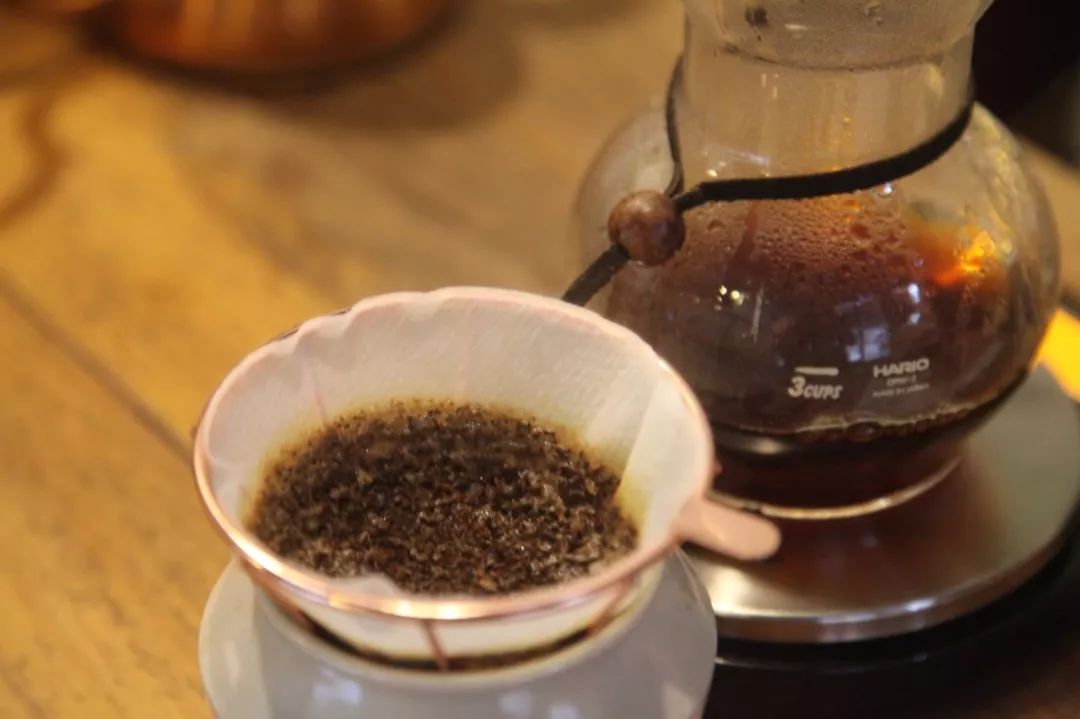
Cooking experiment | comparison between V60 filter cup and hollowed-out filter cup the original V60 filter cup has the fastest flow rate!
Professional coffee knowledge exchange more coffee bean information please follow the coffee workshop (Wechat official account cafe_style) Coffee filter cup is extract
Related
- Beginners will see the "Coffee pull flower" guide!
- What is the difference between ice blog purified milk and ordinary milk coffee?
- Why is the Philippines the largest producer of crops in Liberia?
- For coffee extraction, should the fine powder be retained?
- How does extracted espresso fill pressed powder? How much strength does it take to press the powder?
- How to make jasmine cold extract coffee? Is the jasmine + latte good?
- Will this little toy really make the coffee taste better? How does Lily Drip affect coffee extraction?
- Will the action of slapping the filter cup also affect coffee extraction?
- What's the difference between powder-to-water ratio and powder-to-liquid ratio?
- What is the Ethiopian local species? What does it have to do with Heirloom native species?

